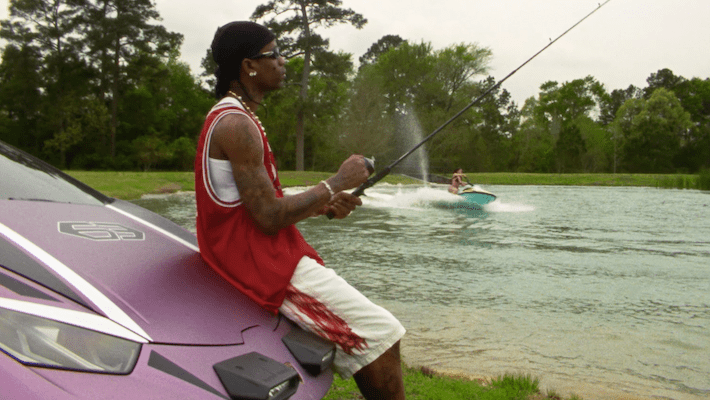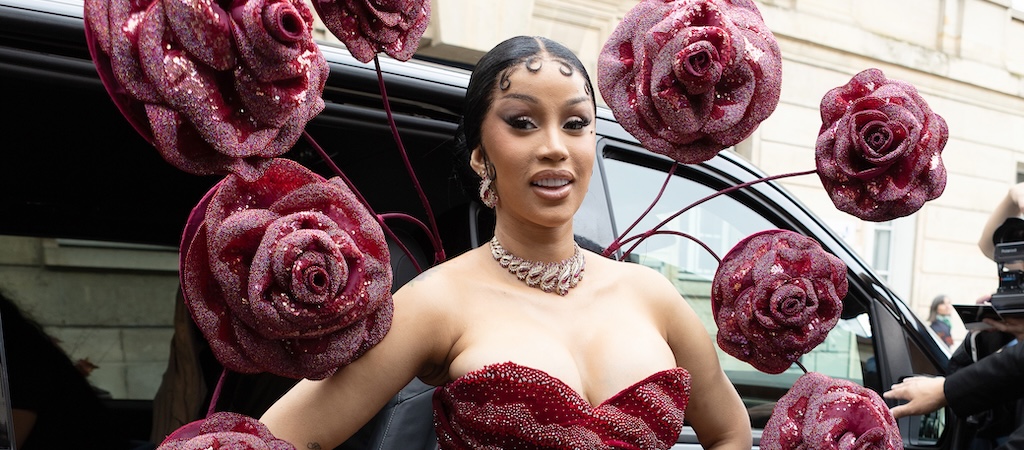Now that production in Los Angeles has started up again, music supervisors behind ‘Euphoria,’ ‘Little Fires Everywhere’ and pandemic-inspired commercials believe they are about to be busier than ever.
On March 15, music supervisor Mary Ramos was supposed to be at the premiere party for Hulu miniseries Little Fires Everywhere. Instead, she was listening to the show’s lead actors Reese Witherspoon and Kerry Washington deliver speeches over Zoom. “We had this informal kind of toast,” recalls Ramos. “Some of the cast members posted themselves [on social media] in their gorgeous gowns.”
At the time, Ramos was in the middle of post-production on three projects, including Little Fires Everywhere, and was opening discussions with composer Mychael Danna about the upcoming film Stillwater, directed by Tom McCarthy (Spotlight, The Cobbler). Much like Hollywood red carpet parties, due to the pandemic-imposed lockdown, this too has turned digital. Normally, Ramos would kick off the creative process by facilitating an hours-long conversation while in the same room as the director and composer, saying, “You want the [them] to communicate as much as possible during that time. From those notes, that’s what the composer goes off of.”
Instead, Ramos, McCarthy and Danna were required to spot the film — where they determine to add in the score — over Zoom, which Ramos describes as “a wonky process” and far less fluid. This kind of adjustment is just one of the many issues music supervisors have faced during the monthslong shutdowns caused by the coronavirus pandemic, which halted production and filming of projects in mid-March and started to lift last Friday in California — the center of TV and film production. Most music supervisors work as independent contractors and while those with projects in post-production have been fortunate enough to resort to Zoom sessions, those stuck in pre-production have been left with few options to keep working. And while pre-recorded stand-up specials, animated work or commercials have offered relief for some, many have been left holding out and hoping they’ll be busier than ever as production starts up again.
For music supervisor Jen Malone, who has earned acclaim for her work on award-winning shows including HBO’s Euphoria and FX’s Atlanta, her creative process always starts with a playlist. For every show to which she and her two-person team — which includes Nicole Weisberg and Satya Fuentes — sign on to, they begin to build a collection of new music that often reaches nearly 200 songs. But for the past three months, that’s about all she could do. “I don’t want to say you feel helpless,” Malone says of having multiple projects in pre-production, like season three of Atlanta and the new AMC show Kevin Can F— Himself. “But there’s nothing I can do as a music supervisor [right now] except make cool playlists [for our producers and showrunners to listen through] when they’re done with a very stressful day.”
There is a plus side: Malone says much of her job typically involves licensing and clearances, while “being up against the clock constantly.” But now, with everything on hold, she’s able to take five-plus hours and go down “Spotify rabbit holes,” often turning to Soundcloud, TikTok and Audiomack to discover new music, too. Currently, she’s obsessed with the new Yaeji album, What We Drew 우리가 그려왔. “I think it could fit in so many different spots on so many different shows,” she says. “It’s a great record that has so much synch possibility — but I have nowhere to put it.”
Jordan Passman, founder/CEO of Score a Score — a music-supervision company that manages independent composers and specializes in sonic branding for advertisements, video games and trailers — says he was preparing for the “absolute worst” when the pandemic first hit. He quickly realized that companies arguably needed Score a Score more than ever.
“Brands were so quick to respond to this [pandemic],” he says. “As you saw, so many put out messages right away, and we really benefited from getting to work with Apple, Taco Bell, Pizza Hut, Prudential and Cigna on a bunch of response ads.”
And though his company’s trailer work nearly slowed to a halt when live production was on hold, Passman says “there was never a more opportune time for the streamers that can instantly put out a new piece of content.” Case in point: During lockdown, his company scored two Netflix comedy specials of pre-recorded footage.
Score a Score — which has eight full-time employees and a few hundred musicians on its roster — has “always been set up for success in the [event] of an economic dip,” he says. “People aren’t necessarily going to go to the most expensive labels, publishers and artists, but they might look for a composer like the ones we have.” He also adds that because they offer “one-stop, easy-clearance solutions,” thanks to their in-house catalog, they can work with a quick turnaround of just a few days. However, he stresses, “We’re still downstream of the entire industry — if it’s hurting, we’re going to hurt at some point.”
As independent contractors, Ramos and Malone aren’t entirely immune to the changes facing Hollywood and the larger entertainment industry, either. Ramos says it was “painful” to be final-mixing remotely, though she applauds the “bomb mix crew” for Little Fires Everywhere that made the process as seamless as possible by sending protected links and organizing notes. She also says that while working from home, she realized the importance of high-quality, noise-cancelling headphones. “Because when you’re home, it’s super easy to have your kid walk in when you’re trying to pay attention,” she says.
Prior to the pandemic, Malone had made a habit of coming in early during post-production to have lunch with the crew, editors, co-producers and assistant editors. She now realizes it will be a long time, even as production does pick back up, before that can happen again with on-set personnel likely limited.
Her favorite part of the job has always been sitting in the edit bays with a show’s team watching the just-filmed, raw and unedited footage and deciding together where and when the music should come in. But again, she admits, “I don’t think that’s going to be possible for the foreseeable future — they’re really small.” Remote mixing and spotting sessions could continue even as Hollywood film and TV productions rev back up. “There’s potential to lose that unified experience of hearing something together and making cohesive decisions, because everybody’s going to be having a different viewing and listening experience,” she says. “There are nuances when you speak creative that can get lost in a Zoom or conference call.”
As a result, Ramos says working through the pandemic remotely has forced her to be very explicit in how she envisions a song being placed within the action. “It’s causing me to be more descriptive and communicative in what I want,” she says, noting that though she’s L.A.-based she often works with directors in New York. “I used to look forward to being flown to New York City for spotting sessions. I still look forward to that at some point, but [working remotely] has been done, it has been successful, and so there is that possibility that people will save money on travel. It’s not absolutely essential for me to be in the same room with the director, producers or show runners.”
As for Malone, with so many of her projects on hold, she says she at least has finally been able take a stress-free breather. “As an independent supervisor, I can’t really take vacations,” she says. “I can’t put an out-of-office email and not worry about anything, because I’m always having shows and projects going, thankfully. But now, I can sit outside and read a book and not feel guilty about it.”
She doesn’t anticipate having that kind of free time for much longer. As California and many other states around the country begin to open back up, Malone says she has been keeping an eye on how Tyler Perry, whose studio is in Atlanta, is handling a safe return to work (Georgia became one of the first states to enter phase one of reopening back on April 24). Meanwhile, Passman says he has already seen glimpses of business returning to normal. He’s currently working on a project entirely unrelated to the coronavirus, creating a new signature sound and accompanying campaign for an existing brand. “I even heard about a client [already] shooting live-action in Copenhagen and Canada,” he says. “That gives me a lot of hope.”
“If going to Iceland or New Zealand or Sweden is what it takes to get back into it and make the shows that these creators want to make, then bon voyage!” Malone says. “I will work [with the time difference].”
But as U.S production does begin to start up again, that might not be necessary. Passman predicted that “the second that production starts up again, it’s going to be really crazy.” However, Malone is proceeding with cautious optimism for now. “As shoots evolve to meet the safety constrictions, things are going to need to simplify: minimal actors in a given scene and stories that can shine within more of a skeleton set or cast,” Malone continues. “And with that, there may actually be more room for music to be in the forefront and really take a front seat in driving the narrative.”
“There’s so much content being created and in development, and once some of these [safety] problems are solved, there will be a lot of work for us — and I’m very grateful for that.”




